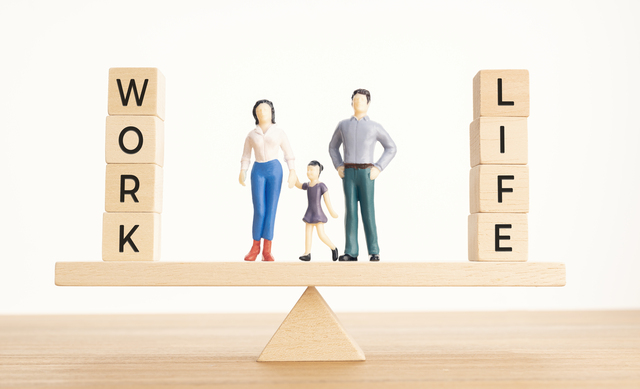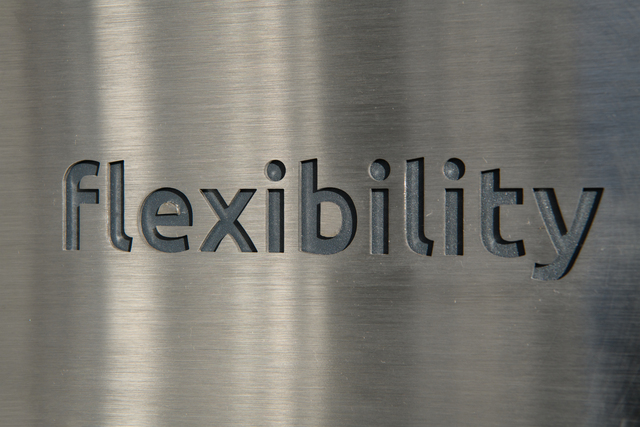Are you feeling that your work and personal life are battling for dominance like two sumo wrestlers in a tiny ring? In this guide, we will dive into strategies to get better work life balance—because let’s face it, nobody wants to work until they drop.
So, grab your stress ball (you won’t need it for long), and let us explore how to find some balance before your to-do list takes over the world or your family decide to confine you to aloneness!
Change your Mindset Towards Work and Personal Life
Changing your mindset towards work and personal life is the foundation for achieving better work-life balance. You must be committed to making the change and not just paying lip service to doing so.
Run through this 6-point checklist to see how you can go about making the shift. Pause and reflect on each one.
Recognize the Importance of Balance

Understand that work-life balance is important not only for your health and well-being but also for long-term productivity and success. Accept that both work and personal life are equally important.
Work is just one aspect of your life. Reframe your thinking to see work as a component of a fulfilling life, not the entirety of it. This helps you place appropriate boundaries around work time.
Reflect on your personal values and how they align with your work. When your work aligns with your values, it feels more meaningful and less like a burden, which can help reduce stress.
Shift from Quantity to Quality
Focus on the quality of work you do rather than the quantity. Prioritize tasks that add value, and recognize that working longer hours doesn’t necessarily mean better outcomes.
Embrace challenges as opportunities to learn and grow rather than as stressors. This perspective helps you handle work demands more effectively and reduces the pressure of perfectionism.
Embrace Flexibility and Let Go of Guilt
Accept that balance does not mean equal time spent on work and personal life every day. Some days may require more focus on work, while others may need more attention to personal life. Flexibility allows for a more realistic and sustainable balance.
Release the guilt associated with taking time for yourself or stepping away from work. Understand that self-care is necessary for long-term success and well-being.
Focus on What You Can Control
Concentrate on the aspects of your work and life that you can control, and let go of the rest. This shift helps reduce stress and fosters a more positive outlook.
Practice mindfulness by being present in whatever you’re doing, whether it is work or leisure. This helps you fully engage with each activity and reduces the feeling of constantly being pulled in different directions.
Value Rest and Recreation
See rest and recreation not as a luxury, but as essential components of a productive and fulfilling life. Recognize that downtime replenishes your energy and creativity, making you more effective at work.

Celebrate Small Wins
Regularly acknowledge and celebrate small achievements, both at work and in your personal life. This helps maintain motivation and a positive outlook.
By initially shifting your mindset in these ways, you can now proceed to implementing the 8 strategies to get better work life balance and a healthier lifestyle.
Maintain Office Hours
Establish specific work hours and stick to them. Communicate these boundaries to your managers and coworkers.
Set Boundaries
Do not overcommit yourself. Be realistic about what you can handle and don’t be afraid to decline additional tasks or responsibilities you do not have the bandwidth for.
Remember that you are only human. Accept that you are doing your best and only capable of doing so much.
Practice Self-care
Make your physical and mental well-being non-negotiable. Practicing self-care is essential for achieving work-life balance. Treat any physical illnesses you have quickly. Start by setting aside time each day for activities that recharge you, like exercising, staying hydrated, meditating, or enjoying hobbies.
Prioritize quality sleep, ensuring you get enough rest to maintain energy and focus. Schedule regular breaks during work to prevent burnout and refresh your mind. Set boundaries by disconnecting from work after hours and dedicating time to loved ones or personal interests.
Remember, self-care is not selfish butnecessary for sustained productivity and well-being. By taking care of yourself, you will be better equipped to handle work demands and enjoy a fulfilling personal life.
Allow for Personal Time
It is important to find some time to pause, reflect, and spend time with family. Focus on the aspects of your life for which you are thankful to foster a positive mindset.
Find Relaxing Hobbies
Relaxing hobbies like reading, gardening, or painting can help you unwind and disconnect from work stress. Yoga or gentle stretching promotes relaxation and mental clarity. Engaging in creative activities like writing or playing a musical instrument offers a soothing escape.
Cooking or baking can be therapeutic, providing both focus and a sense of accomplishment. Even simple activities like walking in nature or practicing meditation can significantly enhance your work-life balance by reducing stress and promoting well-being.
Plan Vacations
Use your vacation time to disconnect from work and recharge. Plan regular vacations or staycations to relax and unwind.

Ask for Help
If you are struggling with chronic stress, talking to a trusted family member, friend, manager, life coach, or mental healthcare provider about how stress is impacting you and asking for help.
Consider Career Changes
If all else fails, and your workload does not let up, such that your health is suffering, it may be time to think about changing your job or career.
Conclusion – Strategies to Get Better Work Life Balance
Achieving better work-life balance is a continuous process that requires intention and effort. By setting clear boundaries, prioritizing self-care, and engaging in relaxing hobbies, you can create a healthier, more fulfilling routine.
Remember, balance does not mean perfection, but about finding what works for you and making adjustments as needed.
Incorporate these strategies to enhance your well-being, boost productivity, and enjoy a richer personal life. Ultimately, a balanced life leads to greater happiness and long-term success both at work and at home.
Related Articles
- 10 Effective Tips for a Work Life Balance: How to De-Stress
- A Toxic Work Environment and Mental Health – 7 Negative Effects

